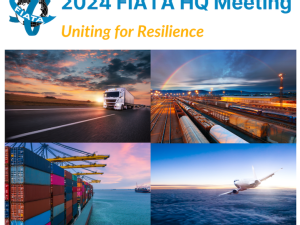Landmark decision on global mechanism to reduce aviation emissions reached
posted by AJOT | Oct 10 2013 at 01:46 PM | Air Cargo
Aviation is a key enabler of global economic growth and social development. However, like all sectors of the economy it needs to contribute to reducing greenhouse gas emissions. Although international aviation’s current contribution is only around 2 per cent of global CO2 emissions, it recognises the need to stabilize its emissions and has aggressive targets for doing so, through ‘carbon-neutral growth’ from 2020 and halving emissions by 2050, based on 2005 levels.
The landmark decision was agreed at ICAO’s 38th Assembly and a firm proposal for a global MBM is expected to be made at the next ICAO Assembly in 2016 with implementation from 2020. The MBM is part of a package of measures designed to enable aviation to reach its goal of carbon-neutral growth. Further work towards the establishment of robust particulate matter and carbon emission standards by the 2016 Assembly was also supported. Additionally, the Assembly agreed on a comprehensive strategy to progress technology, operations and alternative fuels to reduce emissions.
Chris Welsh, Secretary General of the Global Shippers’ Forum and Chairman of the GACAG Sustainability Task Force, said: “GACAG is pleased to welcome a global approach to reducing carbon emissions from aviation. This will ensure that we prevent a patchwork of regional schemes which would have made carbon reduction fragmented, complex and expensive. However, we must not underestimate the scale of the challenge for ICAO to reach global agreement on a MBM.”
Similar to the maritime sector’s development of an MBM, major efforts will need to be undertaken in order to assess the challenges and settle the concerns of developing countries in participating in the MBM. The concerns of shippers are also an important factor in the development of the details of a global MBM.
Welsh added: “GACAG has a role to play in ensuring that any MBM adopted to curb emissions is cost-efficient and practical for industry as well as promoting aviation’s crucial role in moving cargo.”
Oliver Evans, Chairman of GACAG, underlined the achievement: “All four founding members of GACAG have separately and jointly been vocal in their lobbying for a global MBM. Moreover, due to the mix and competition of modes of transport, every effort should be made to ensure comparability of end-to-end supply chain emissions.”
It is also vital that ICAO establishes a consistent and accurate standard for monitoring and verification of carbon emissions.











